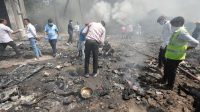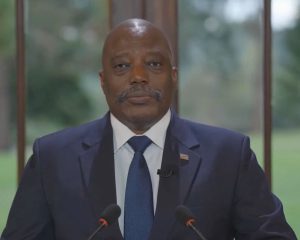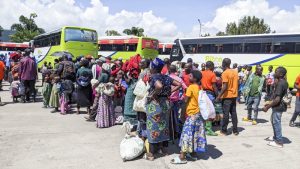Burundi reinforces troops in Eastern DRCongo to halt M23, Twirwaneho advance
As the security crisis deepens in the eastern Democratic Republic of the Congo (DRC), Burundian troops have been redeployed in large numbers to the volatile territories of Fizi and Uvira in South Kivu. The military buildup aims to curb the spread of M23 and Twirwaneho, two armed groups reportedly seeking control over the strategic highlands near the Congolese-Burundian border.
According to local sources, Burundian forces crossed Lake Tanganyika earlier this week, landing at the port of Mboko and moving toward Bijombo and Minembwe. These areas, central to the Banyamulenge community, have long been flashpoints of ethnic tension and insurgency.
The redeployment follows intense clashes last week in Kahololo (Uvira) and Rugezi (Fizi), involving the Burundian army, Wazalendo militias, FARDC, and Twirwaneho fighters, a group accused of collaborating with M23.
On Thursday, several Burundian units at Mboko port confirmed they were en route to Bijombo, a strategic military and symbolic area in the South Kivu highlands. Other troops were seen mobilizing in Swima, advancing toward Gihamba and Kajembwe, while movement was reported near Kirumba, a Twirwaneho stronghold, sparking fear of imminent confrontations.
In Mukela, where Burundian troops temporarily retreated, military sources say they are regrouping for an offensive against rebel positions in Minembwe, another area on edge due to overlapping armed group activity.
Initially deployed in 2022 to counter Burundian rebel groups like Red-Tabara and FNL, Burundi’s mission in the DRC has significantly evolved. Today, over 10,000 Burundian troops are reportedly stationed across South Kivu, supporting FARDC and aligned Congolese militias.
The new focus is on Twirwaneho, a militia largely made up of Banyamulenge fighters. Authorities allege that Twirwaneho is receiving support or coordination from M23, a rebel group with roots in the Tutsi community that resumed fighting in 2021.
A joint security meeting held on May 14 in Uvira between Burundian and Congolese commanders reportedly reaffirmed a shared commitment to confront M23 and Twirwaneho, amid fears the violence could spill toward Bujumbura, Burundi’s capital, located just 30 km from the frontier.
The M23, which cites Kinshasa’s failure to implement demobilization and reintegration agreements as the reason for its resurgence, now controls swathes of territory across North and South Kivu. These regions are rich in minerals, further complicating the conflict as economic interests collide with ethnic tensions and geopolitical rivalries.
Despite regional and international condemnation, the group continues to gain ground, exposing weaknesses in FARDC’s capabilities and prompting greater reliance on regional allies like Burundi and Uganda.
For civilians, the situation is dire. The highlands of South Kivu, home to mixed communities including Banyamulenge, Bembe, and Bafuliiru, are now at the heart of a geopolitical and ethnic conflict, with widespread displacement, human rights abuses, and humanitarian needs escalating.







